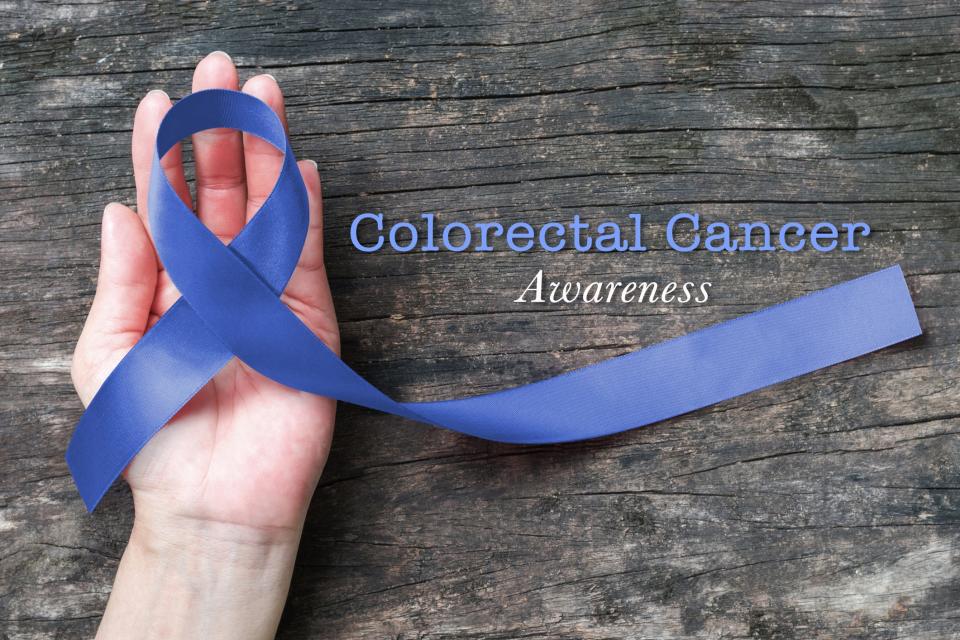Ted Buss celebrates 15 years cancer-free
Preventive measures, screening make a difference in colon cancer outcomes

I share the following story to emphasize the importance of being practical after age 50 when it comes to visiting a physician of gastroenterology. It is a long-proven preventive measure against colon cancer.
Whether you feel fit or not, this is a decision that can extend your years and save your life. Colon cancer is the second leading cause of cancer deaths in the U.S. behind lung cancer. It is deadly, but it is also curable when diagnosed and dealt with in time.
I tell you this because of my own story, and that of two close friends.
In September 2007, I was working in the athletic department at MSU-Texas when a feeling that something in my body just wasn’t right. Walking across the basketball court after a game was a struggle, and I was told my color looked pasty and ashen.
I made an appointment to see Dr. Joe Dean, one of the city’s leading gastroenterologists at the time, and I explained my symptoms. After standard tests, he performed a colonoscopy—a tube scope that looks for swollen, irritated tissue, polyps or cancer in the large intestine.
Twenty years ago, detection, prep and the entire procedure were not nearly as easy as it is today and, in my case, it took a second scope for Dean to confirm cancer within my colon. A day later, Dr. Jerry Meyers removed about 12 inches of my colon. The result was that the cancer had not escaped and spread to other organs, but I still went through chemotherapy and blood work.
This month I feel fortunate and blessed to celebrate 15 years of being cancer-free. Sadly, a year or two after my successful surgery, I had two close friends die of the disease. In each case they admitted to putting precaution second behind busyness.
A few days ago, I had a long talk about the importance of preventive medicine with Dr. Tim McClellan, M.D., and founder of Wichita Falls Endoscopy Center (2005) Gastroenterology Associates (2006).
The first thing Dr. McClellan and I agreed on was the difference in colon prep and scoping today from what it was in 2007. Today, prep is far easier and the procedure takes minutes with the patient good-to-go 10 minutes after they awaken.
“I liken it a little bit to how much more improved HDTV is today than it was 20 years ago,” McClellan said. “The pictures we look at are far sharper and the polyps and other caution signs are easier to detect.”
A colon polyp is a small clump of cells that forms on the lining of the colon. McClellan said that most polyps are harmless, but over time some polyps can develop into colon cancer, which may be fatal when found in its later stages.
Finding these polyps and removing them through timely intervention is the best prevention for colon cancer.
“Part of our mission is to get across to people who are reaching the age (50) the importance of getting a colonoscopy. The current age for African Americans is 45. I don’t know why it is, but women are generally more practical with their health than men.

“The usual objections for men are that a scope is a hassle . . . It’s embarrassing . . . I’m much too busy. I have no family history, I’m fishing and playing a lot of golf, I feel fine.”
He said that the most common symptom is “nothing.” The goal of the physician is to find the cancer before it has grown and can be treated. Again, we refer to “preventive medicine.”
“The usual time to begin screening in families without cancer history is age 50,” he said. “However, we are seeing patients as young as 30 to 35 with symptoms and we’ll probably see the average age drop to 45.”
A scope every 10 years is the norm unless cancer runs in the family or other circumstances. It could be seven years or less.
McClellan said a stool test is another measure to determine health issue. “If the stool tests positive,” he said, “then a colonoscopy is in order.”
A colonoscopy will never be on anyone’s fun list even if it far more tolerable today. However, procrastination is never a wise option.
Ted Buss is a former sports and business editor at the Times Record News.
This article originally appeared on Wichita Falls Times Record News: Preventive measures make a difference in colon cancer outcomes

